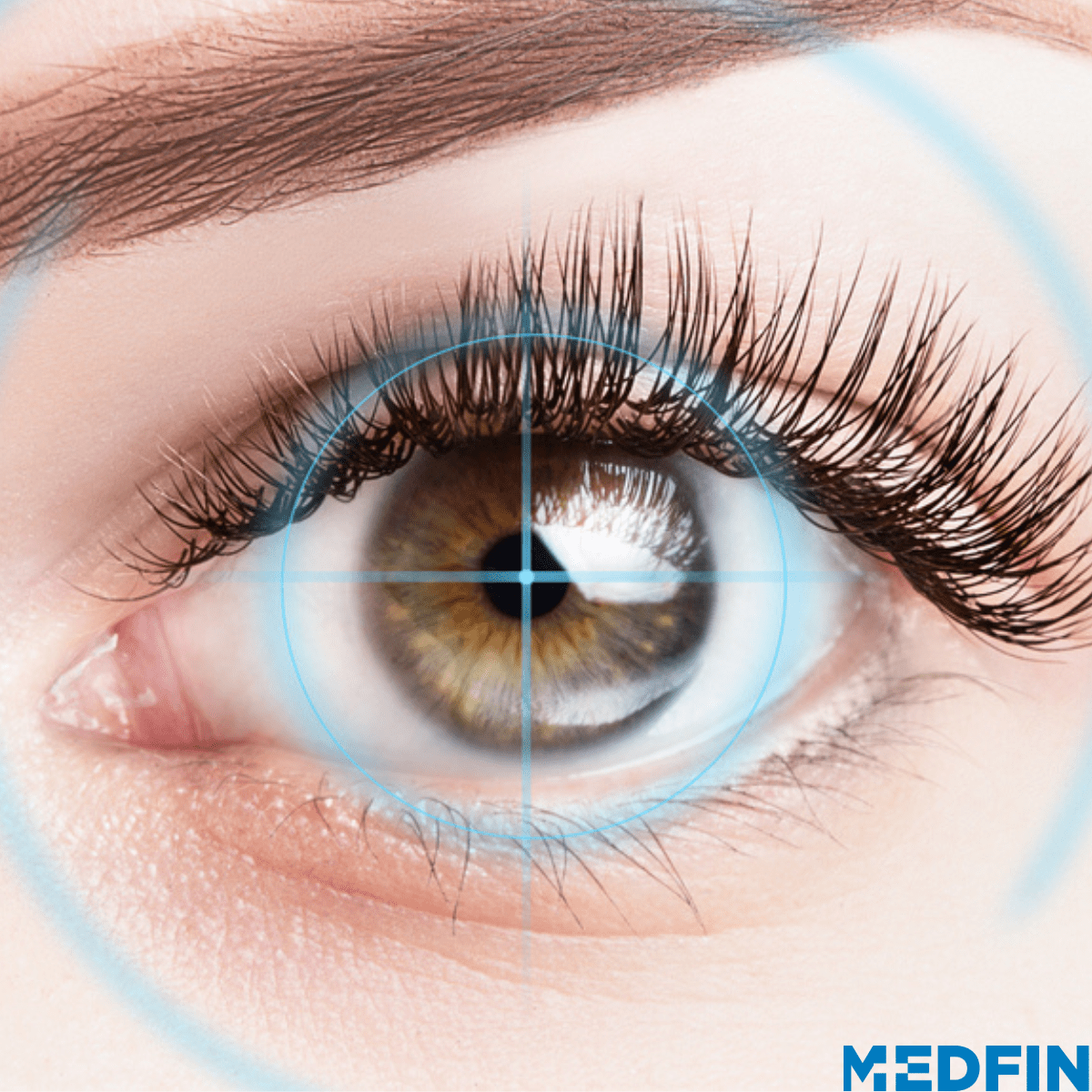Eye Care
10 Common Eye Diseases, Causes and Treatment

by admin
26th September 2023
7 minutes read
Eye health refers to the condition of a person’s visual system and the performance of the eyes at their full potential. Maintaining good eye health is critical for one’s overall well-being and quality of life, considering the fundamental role vision plays in our daily activities, learning, and communication. It involves regular eye exams, proper nutrition, adequate sleep, and protective measures against harmful elements, such as ultraviolet rays and digital screen exposure.
There are several key aspects to maintaining eye health:
1. Regular Eye Exams: Regular eye exams are vital in maintaining eye health. Comprehensive eye examinations can detect vision problems, eye diseases, and general health problems before noticeable symptoms occur.
2. Nutrition: Nutrient-rich foods like leafy green vegetables, fruits rich in Vitamin C, and fish high in omega-3 fatty acids can contribute significantly to eye health.
3. Adequate Sleep: Just like the rest of your body, your eyes need rest. Regular, quality sleep refreshes and revitalizes the eyes, reducing eye strain and dryness.
4. Protective Eyewear: Whether it’s sunglasses to protect against UV rays, goggles for swimming or safety glasses for work or play, the right protective eyewear can prevent injury and protect against harmful elements.
5. Limiting Screen Time: With the increasing use of digital devices, it’s crucial to practice good habits when using screens, like taking regular breaks and using the 20-20-20 rule (every 20 minutes, look at something 20 feet away for 20 seconds).
6. Hygiene: Regular hand washing and avoiding touching your eyes can prevent many eye infections. If you wear contact lenses, proper cleaning, disinfection, and storage are essential.
7. No Smoking: Smoking increases the risk of multiple eye diseases, including cataracts, macular degeneration, and optic nerve damage.
If you notice any changes in your vision, it’s essential to see an eye care professional right away, as this could be a sign of a serious eye problem.
10 Common Eye Conditions
To aid in maintaining good eye health, it’s crucial to understand some of the most common eye diseases, their causes, and their treatments. Let’s take a closer look at 10 such ailments:
1. Cataracts
Cause: Cataracts develop when the lens in your eye, which is typically clear, becomes clouded. Aging is the most common cause, but other factors like injury, certain medications, or prolonged exposure to ultraviolet light can also contribute.
Treatment: The only effective treatment for cataracts is surgery. It’s a safe and routine procedure where the cloudy lens is removed and replaced with a clear, artificial one.
2. Glaucoma
Cause: Glaucoma is a group of diseases that damage the optic nerve, usually due to abnormally high pressure in your eye. Risk factors include age, ethnicity, family history, and certain medical conditions like diabetes.
Treatment: While glaucoma damage is irreversible, treatment can slow or prevent further vision loss. Treatment often involves prescription eye drops or oral medications. In some cases, laser treatment or surgery may be necessary.
3. Age-Related Macular Degeneration (AMD)
Cause: AMD is a condition that affects the macula, the part of the retina responsible for central vision. While the exact cause is unknown, factors like age, genetics, smoking, and obesity can increase the risk.
Treatment: There’s no cure for AMD, but treatments like laser therapy, anti-angiogenic drugs, and certain vitamin supplements can slow progression and prevent severe vision loss.
4. Diabetic Retinopathy
Cause: This disease is a complication of diabetes. High blood sugar levels can damage the blood vessels in the retina, leading to vision loss.
Treatment: Management of diabetes is crucial in preventing diabetic retinopathy. In advanced stages, treatments may include laser surgery, vitrectomy, or injections of anti-VEGF drugs.
5. Dry Eye Syndrome
Cause: Dry eye syndrome occurs when your tear glands don’t produce enough tears for adequate eye lubrication. It can result from various factors like age, certain medical conditions, or environmental factors.
Treatment: Artificial tears, prescription eye drops, certain medications, or in some cases, minor surgical procedures, can effectively manage dry eye syndrome.
6. Refractive Errors
Cause: Refractive errors, including myopia (nearsightedness), hypermetropia (farsightedness), and astigmatism, are caused by irregularities in the shape of the eye, which prevent light from focusing properly on the retina.
Treatment: Refractive errors are typically corrected using glasses, contact lenses, or refractive surgeries like LASIK.
7. Conjunctivitis (Pink Eye)
Cause: Conjunctivitis is an inflammation of the conjunctiva. It can be caused by viruses, bacteria, allergens, or irritants like smoke or dust.
Treatment: Treatment depends on the cause. Bacterial conjunctivitis often requires antibiotic eye drops, while viral conjunctivitis usually clears up on its own. Allergic conjunctivitis is treated with antihistamines.
8. Keratoconus
Cause: Keratoconus is a progressive eye disease in which the normally round cornea thins and begins to bulge into a cone-like shape. The cause isn’t fully known, but it’s thought to be a combination of genetic and environmental factors.
Treatment: In early stages, glasses or contact lenses can correct vision. As the disease progresses, treatments may include corneal cross-linking, intracorneal ring segments, or in severe cases, corneal transplant.
9. Retinal Detachment
Cause: Retinal detachment happens when the retina separates from the back of the eye. Causes can include aging, trauma, or other eye disorders.
Treatment: Retinal detachment is a medical emergency requiring immediate surgery to prevent permanent vision loss. Methods include laser surgery, freezing (cryopexy), or a procedure called a vitrectomy.
10. Uveitis
Cause: Uveitis is inflammation of the uvea, the middle layer of the eye. It can be caused by an autoimmune disorder, infection, or exposure to toxins.
Treatment: Treatment typically involves anti-inflammatory drugs, steroid eye drops, or immunosuppressive drugs in severe cases.
Conclusion
Awareness is key when it comes to eye health. By understanding these common eye diseases, their causes, and treatments, we can better manage our eye health and seek medical help when necessary. Remember, regular eye check-ups are a cornerstone of preventive eye care. So, keep an eye on your vision and ensure it remains clear and healthy.
How Can Medfin Help?
Medfin is a daycare surgery expert providing access to the latest surgical procedures and top doctors in your city at affordable prices. Medfin provides you access to top doctors and surgeons with 10+ years of experience. With Medfin, you can leave your hassles behind and focus on your health. From instant consultations to paperwork assistance, we have got you covered with everything. So why wait? Call us today!
FAQs
1. What is the leading cause of blindness?
Globally, the leading causes of blindness are cataracts, age-related macular degeneration (AMD), and glaucoma. However, the majority of blindness is preventable or treatable with early detection and intervention.
2. Can eye diseases be cured?
Treatment depends on the specific disease. Some conditions, like cataracts, can be cured with surgery. Others, like glaucoma and AMD, can’t be cured but can be managed to slow progression and prevent vision loss.
3. What are the common symptoms of eye diseases?
Common symptoms may include blurred or distorted vision, spots or floaters, dry or watery eyes, eye pain, double vision, light sensitivity, or loss of peripheral vision. Changes in vision should always be checked by a healthcare professional.
4. How often should I have my eyes checked?
Regular eye exams can catch eye diseases early and prevent vision loss. Adults should have a comprehensive eye exam every 1-2 years, but those with existing eye conditions may need more frequent checks.
5. Can lifestyle changes reduce the risk of eye diseases?
Yes, maintaining a healthy lifestyle can lower the risk of many eye diseases. This includes eating a diet rich in fruits and vegetables, regular physical exercise, avoiding smoking, limiting alcohol consumption, and protecting your eyes from harmful UV rays.
CATEGORIES
- ACL Reconstruction
- Anal Fissures
- Anal Fistula
- Appendicitis
- ASK A DOCTOR
- Benign Prostatic Hyperplasia
- Breast Lump Excision
- Cataract
- Circumcision
- Conditions & Diseases
- Cosmetology
- Covid-19
- Cure
- Endocrinology
- ENGLISH VIDEOS
- Eye Care
- Gallstones
- General Surgeries
- Government Schemes
- Gynaecology
- Gynecomastia
- Health
- Health Insurance
- Hernia
- hindi
- Hip Arthoscopy
- Hip Replacement
- Hip Replacement Surgery
- Hydrocele
- Kannada
- Kidney Stones
- Knee Arthroscopic
- Laparoscopic
- LASER
- Latest Treatments
- Lifestyle
- Liposuction
- Medfin Stories
- Medicine
- Nephrology
- Ophthalmology
- Orthopaedic
- Paraphimosis
- Patient Testimonials
- PCL Reconstruction
- Phimosis
- Piles (Hemorrhoids)
- Pilonidal Sinus
- Proctology
- Prostate Artery Embolization
- Rhinoplasty
- Second Opinion
- Total Knee Replacement
- Uncategorised
- Urology
- uterine artery embolization
- Uterine Fibroids
- Varicocele
- Varicose Veins
- Vascular
- VIDEOS






